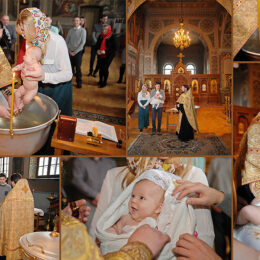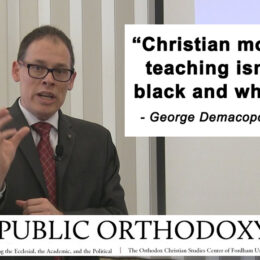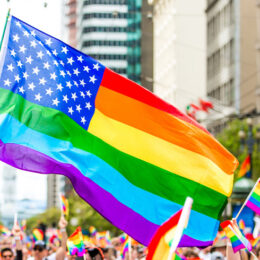WASHINGTON BUREAU: Terry Mattingly’s religion column for 2/15/06.
One of the demonstrators was a small child with a placard that said, “Whoever insults the prophet kill him.” Another marcher wore a suicide bomber costume.
Other signs in London said: “Behead those who insult Islam,” “Europeans take a lesson from 9/11” and “Prepare for the REAL Holocaust.” The organizer of the Feb. 3 event told the BBC that he looked forward to the day when “the black flag of Islam will be flying over Downing Street.”
But what stunned British writer Geoffrey Wheatcroft was something else he saw while blitzing through news reports about the waves of fury inspired by those 12 Danish cartoons of the prophet Mohammad.
“Not only did the police make no arrests” during the London demonstration, even though it “openly incited murder; they actually sheltered the fanatics,” he noted, in a Slate.com essay. “Two men who tried to stage a peaceable counterdemonstration were hustled away for questioning. A working-class Londoner Š was told in violent language by a cop to get back in his van and go away.”
This raises a disturbing question: Have British citizens lost the ability to exercise their free speech rights in public defiance of demands by many Muslim clerics and politicians for limitations on the freedom of the press in the West?
It’s hard to answer this kind of question right now because a “moral climate change” has destroyed England’s certainty that some things are right and some things are wrong, said Bishop N.T. Wright of Durham, in a speech last week in the House of Lords. Thus, civic leaders cannot agree on the meaning of words such as “freedom” and “tolerance” and religious faith is seen as a threat instead of a virtue.
“The 1960s and 1970s swept away the old moral certainties, and anyone who tries to reassert them risks being mocked as an ignoramus or scorned as a hypocrite. But since then we’ve learned that you can’t run the world as a hippy commune,” said Wright, a former Oxford don who also has served as Westminster Abbey’s canon theologian.
“Getting rid of the old moralities hasn’t made us happier or safer. This uncertainty, my Lords, has produced our current nightmare, the invention of new quasi-moralities out of bits and pieces of moral rhetoric, the increasingly shrill and polymorphous language of ‘rights’, the glorification of victimhood which enables anyone with hurt feelings to claim moral high ground and the invention of various ‘identities’ which demand not only protection but immunity from critique.”
Instead of focusing on the cartoon crisis, Wright described other signs of legal and moral confusion in British life. Prime Minister Tony Blair, for example, sent painfully mixed signals after last summer’s suicide bombings. His government leaned one way when it tried to ban efforts to “glorify” terrorism. Then it leaned the other way with legislation that would ban the promotion of “religious hatred.”
Wright stressed that it will be dangerous to pass laws that attempt to replace, amend or edit religious doctrines that have shaped the lives of believers for centuries. But politicians seem determined to try.
Thus, Birmingham University forced the Evangelical Christian Union off campus and seized the group’s funds because it refused to amend its bylaws to allow non-Christians or atheists to become voting members.
Thus, Wright noted that police have shut down protests in Parliament Square against British policies in Iraq. Comedians — facing vague laws against hate speech — are suddenly afraid to joke about religion. And was there any justification for government investigations of the Anglican bishop of Chester and the chairman of the Muslim Council of Great Britain because they made statements critical of homosexuality?
Public officials, said the bishop, are trying to control the beliefs that are in people’s hearts and the thoughts that are in their heads. The tolerance police are becoming intolerant, which is a strange way to promote tolerance.
“People in my diocese have told me that they are now afraid to speak their minds in the pub on some major contemporary issues for fear of being reported, investigated, and perhaps charged,” said Wright. “I did not think I would see such a thing in this country in my lifetime. Š The word for such a state of affairs is ‘tyranny’ — sudden moral climate change, enforced by thought police.”



